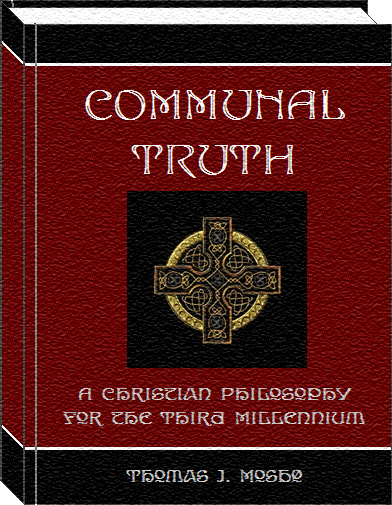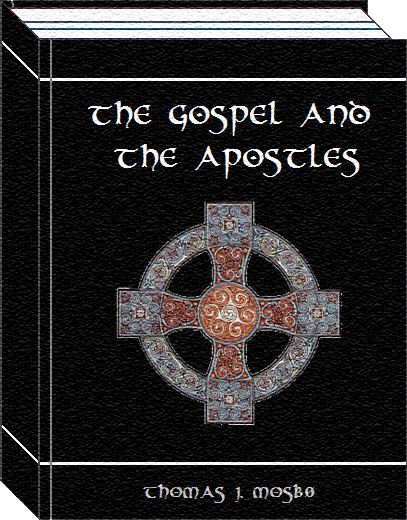
A Word of Introduction
from Thomas J. Mosbø
Welcome! This site is dedicated to my ongoing research in two areas: the development of a viable Christian philosophy appropriate to the world of the 21st Century, and a fresh investigation into the writing of the New Testament, which hopefully offers some new insights into some very old questions.
I hold degrees in philosophy and theology from Luther College in Decorah, Iowa, and Wartburg Theological Seminary in Dubuque, Iowa. I currently live in County Durham, England, and am privileged to be a member of the Durham Cathedral Community.
In the coming weeks and months this website will be growing as I attempt to summarise the contents of my two current and complementary works. To open either one of these "books", click on its "cover" on the left of this page.
Communal Truth
A Christian Philsophy for the Third Millennium
Is a distinctly Christian worldview intellectually valid in the 21st Century? At its heart, such a philosophy needs to be based on a communal understanding of how we as human beings attain knowledge and validate truth. We are not isolated individuals, forced to rely only on our own sense perception or reasoning in order to learn what is true. Instead, we come to know the truth together, through common experiences, personal insights, and shared knowledge. Individual perceptions and revelations provide valuable contributions to our common understanding of truth, but must always be tested and validated publicly.
In the first and most important part of this projected 4-part work (and the only part completed so far), a theory of knowledge has been expounded based on these principles. This communal epistemology will then provide the foundation for the worldview to be developed in parts II-IV, for which basic outlines have been assembled.
However, in order to establish a truly valid Christian philosophy it is also necessary to trace the foundational expresssions of truth as experienced by the early Christian community, which provide the central core of Christian knowledge. These expressions are found primarily in the writings of the New Testament, and hence a detailed understanding of the New Testament is indispensible in the quest to develop a modern Christian worldview. Therefore, work on parts II-IV of the present project has been suspended temporarily in order to focus first on the validity of the truths expressed in the Christian Scriptures. How are we to evaluate the content of these texts? Have their authors conveyed a faithful account of a common experience of truth which is able to be validated publicly? To answer these questions, a second project has been undertaken to apply the principles of the proposed communal epistemology to the study of the New Testament.
The Gospel and the Apostles
"I have taken refuge in the Gospel as the flesh of Jesus and in the Apostles as the council of elders of the church." - Ignatius of Antioch, AD 110
This 7-part work (six parts of which are now complete, with the seventh under way) takes its title from the earliest name for the collection of Christian Scriptures we now know as the New Testament. This original title emphasises the two-fold nature of the Christian canon, in which the four Gospels are preeminent and the other Apostolic writings supplement the Gospels. These Gospels claim to tell the story (and hence to express faithfully the truth) of Jesus. But can we take these texts at their word? This is a profoundly important question and requires serious scrutiny.
The seven parts of this work, in which the various aspects of this issue are to be considered, constitute three distinct volumes:
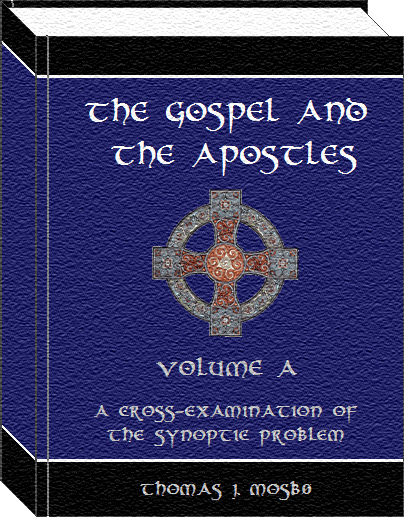
Volume A - A Cross-Examination of the Synoptic Problem
Parts I-IV deal with the writing of the three Synoptic Gospels (Matthew, Mark, and Luke) plus Luke's "Acts of the Apostles". The implications of how we resolve the "Synoptic Problem" [Why are the first three Gospels so similar?] are extremely significant for our understanding of Jesus, of Christianity, and of the other sacred Christian texts.
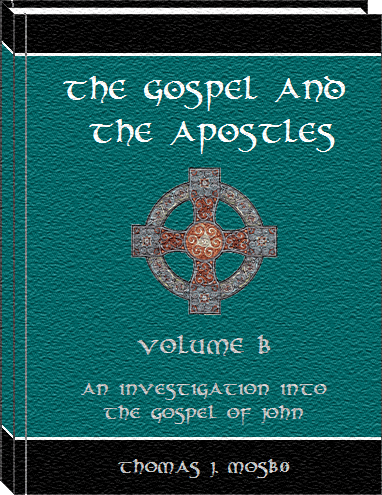
Volume B - An Investigation into the Gospel of John
Part V discusses the "Johannine Problem" [Why is the fourth Gospel so different from the first three?], a vitally important corollary to the Synoptic Problem. The questions of how and why John's Gospel came to be written also have serious ramifications regarding how we make sense of Jesus, the early Christians, and their message.
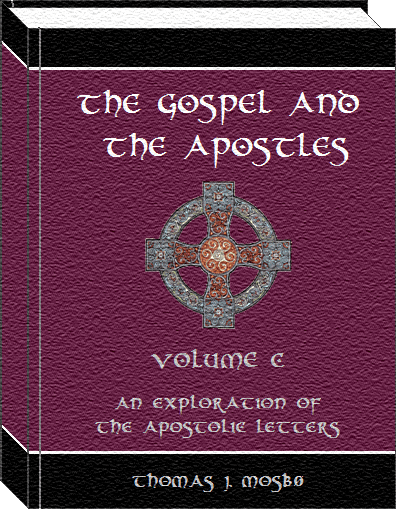
Volume C - An Exploration of the Apostolic Letters
Parts VI-VII expand the scope of the work beyond the Gospels, delving into the relationships of the letters of Paul and the "catholic" letters (including the Apocalypse) to the Gospels, in light of the research carried out in the earlier volumes. Issues regarding the Christian canon as a whole are also raised in order to understand better how to approach this collection of texts.
